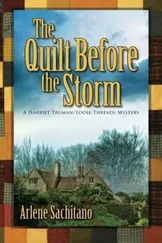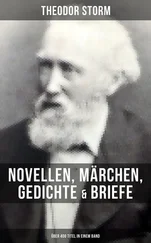‘That’s the least I could do; everything else I did was wrong.’
Yáñez’s eyes danced from one object to another, as if he were searching for an answer hidden among the faded ornaments standing on doilies and side tables, until he met Amaia’s gaze. He grasped the edge of the blanket, lifting it in front of his face for a few seconds, then flinging it aside, as though disgusted with himself for having cried in front of her. Amaia felt certain the conversation would end there, but then Yáñez reached behind the pillow he was leaning against and pulled out a framed photograph. He gazed at the image as if spellbound, then passed it to her. Yáñez’s gesture took Amaia back to the previous year, when, in a different sitting room, a grieving father had handed her the portrait of his murdered daughter, which he also kept hidden under a cushion. She hadn’t seen Anne Arbizu’s father since, but the memory of his pain had stayed with her.
A woman no older than twenty-five smiled at her from the picture. Amaia glanced at her, then handed the photograph back to Yáñez.
‘I thought we’d live happily ever after, you know? She was a young, pretty, kind woman … But after the boy was born she started acting strangely. She grew sad, she never smiled, she wouldn’t even hold him, she said she wasn’t ready to love the boy, and that he rejected her. Nothing I said did any good. I told her she was talking nonsense – of course the boy loved her – but she only grew sadder. She was sad all the time. She kept the house tidy, she did the cooking, but she never smiled; she even stopped sewing, and the rest of the time she slept. She kept the shutters closed, the way I do now, and she slept … I’ll never forget how proud we were when we first bought this place. She made it look so pretty: we painted the walls, planted window boxes … Life was good. I thought nothing would ever change. But a house isn’t the same as a home, and this became her tomb … Now it’s my turn, although they call it house arrest, and the lawyer says they’ll let me serve out my sentence here. I lie here every night, unable to sleep, smelling my wife’s blood below my head.’
Amaia looked intently at the sofa. The cover didn’t go with the rest of the décor.
‘I had it recovered because of the bloodstains, but they’d stopped making the original fabric so they used this one instead. Otherwise everything’s the same. When I lie here, I can smell her blood beneath the upholstery.’
‘The house is cold,’ said Amaia, disguising the shiver that ran up her spine.
He shrugged.
‘Why don’t you light the boiler?’
‘It hasn’t worked since the night of the storm, when the power went.’
‘That was over a month ago. You mean to say you’ve been without heating all this time?’
Yáñez didn’t reply.
‘What about the people from social services?’
‘I only open the door to the fellow who brings the trays. I told them on day one that if they come round here, I’ll be waiting for them with an axe.’
‘You have plenty of wood. Why not make a fire? There’s no virtue in being cold.’
‘It’s what I deserve.’
Amaia got up and went out to the shed, returning with a basket of logs and some old newspapers. Kneeling in front of the hearth, she stirred the cold ashes to make space for the wood. She took a box of matches from the mantelpiece and lit the fire. Then she sat down again. Yáñez stared into the flames.
‘You’ve also kept your son’s room just as it was. I find it hard to imagine a man like him sleeping there.’
‘He didn’t. Occasionally he stopped for lunch, and sometimes supper, but he never spent the night. He would leave, then come back early the next day. He told me he preferred a hotel.’
Amaia didn’t believe it; they had found no evidence of Berasategui staying at any of the hotels, hostels or bed and breakfast places in the valley.
‘Are you sure?’
‘I think so, but I can’t be a hundred per cent sure – as I told the police, my memory is worse than I let on to social services. I forget things.’
Amaia plucked her buzzing phone from her pocket. The display showed several missed calls but she ignored them, scanning through her photos until she found the right image, then touching the screen to enlarge it. Averting her eyes from the photo, she showed it to Yáñez.
‘Did your son ever come here with this woman?’
‘Your mother.’
‘You know her? Did you see her that night?’
‘No, but I’ve known your mother for years. She’s aged, but I recognise her.’
‘Think again, you just told me your memory isn’t so good.’
‘Sometimes I forget to have supper, or I have supper twice because I forget I’ve already had it, but I remember who comes to my house. Your mother has never set foot in here.’
She slipped the phone back into her coat pocket, replaced the dining chair, pulled the shutters to and left. As soon as she was in the car, she reached for her phone and, ignoring the insistent buzzing, dialled a number from her contacts list. After a couple of rings, a man answered.
‘Could you please send someone to fix a boiler that broke down on the night of the storm,’ she said, and gave him Yáñez’s address.
By the time Amaia parked in the square next to the Lamia fountain, the drizzle had turned to a downpour. She pulled up the hood of her coat and hurried through the arch into Calle Pedro Axular, following the sound of raised voices. The anguish and urgency of those missed calls was reflected in Inspector Iriarte’s face as he struggled to contain a group of people intent upon approaching the patrol car. In the rear passenger seat, a weary-looking individual was sitting with his head propped against the rain-beaded window. Two uniformed officers were unsuccessfully attempting to cordon off the area surrounding a rucksack, which lay on the ground in the middle of a puddle. Amaia took out her phone and called for back-up as she hurried over to assist them. Just then, two more patrol cars advanced across the Giltxaurdi Bridge, distracting the angry mob, whose shouts were momentarily drowned out by the wailing sirens.
Iriarte was soaked to the bone, and as he spoke to Amaia, he kept wiping his brow to stop the water going in his eyes. Deputy Inspector Etxaide appeared out of nowhere with a large umbrella, which he handed to them, then went to help the other officers pacify the crowd.
‘Well, Inspector?’
‘The suspect in the car is Valentín Esparza. His four-month-old daughter died last night while sleeping over at her maternal grandmother’s house. The doctor registered the cause as Sudden Infant Death Syndrome. So far, a tragedy. Except that yesterday, the grandmother, Inés Ballarena, paid a visit to the police station. Apparently, the baby was staying the night with her for the first time because it was the parents’ wedding anniversary, and they were going out to dinner. She was looking forward to it, and had even prepared a room for her. She fed the baby and put her down for the night, then fell asleep in front of the television in the sitting room next door, although she swears the baby monitor was on. She was woken by a noise, and went to look in on the baby – who from the doorway appeared sound asleep. Then she heard the crunch of tyres on gravel outside. She looked through the window in time to see a large, grey car driving away. Although she didn’t see the number plate, she assumed it was her son-in-law, as he has one just like it,’ said Iriarte, with a shrug. ‘She claims she checked the time and it was just gone two in the morning. She thought the couple must have driven by on their way home to see if any lights were on. This didn’t strike her as odd because they live nearby. She thought no more about it, and went back to sleep on the sofa. When she woke up, she was surprised not to hear the baby crying to be fed, so she went into the bedroom where she found the child dead. She was upset, she blamed herself, but when the doctor gave the estimated time of death as between two and three in the morning, she remembered waking up and seeing the car in the driveway. She now believes she was woken by an earlier noise inside the house. When Inés asked her daughter about this, she told her they had arrived home at around one thirty; she doesn’t drink usually, so a glass of wine and a liqueur after the meal had knocked her out. However, when Inés questioned the son-in-law, he became agitated, refused to answer, flew into a rage. He told her it was probably a couple of lovebirds looking for a secluded spot; it wouldn’t have been the first time. But then Inés remembered something else: she keeps her two dogs outside and they bark like crazy whenever a stranger comes near the house, but they didn’t make a sound last night.’
Читать дальше












